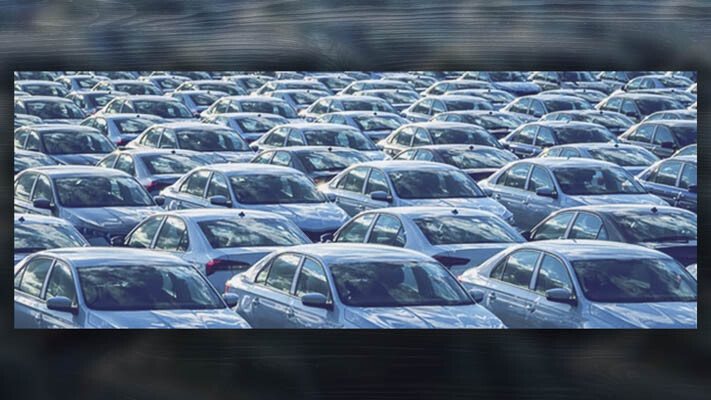
Jason Mercier believes consumers should have the option to choose the vehicles that are the most functional for their individual driving needs and location
Jason Mercier
Mountain States Policy Center
Republican Governors across the country sent President Biden a letter on January 22 in opposition to proposed federal rules they say would unduly restrict the vehicle options available to Americans and force the use of electric vehicles. Among those signing the letter were Idaho Governor Little, Montana Governor Gianforte, and Wyoming Governor Gordon.

The Governors wrote:
“We are writing today on behalf of the American consumer to urge you to change course on your current mandate that two out of every three vehicles be battery electrics by 2032. Instead of using government mandates to drive the vehicle market, allow American consumers to maintain choice in the types of vehicles they choose to drive.
While we are not opposed to the electric vehicle marketplace, we do have concerns with federal government mandates that penalize retailers and do not reflect the will of the consumer. Even with deep price cuts, manufacturers’ incentives, and generous government funding, federal mandates on electric vehicles are unrealistic. The American customer should be able to decide what technology makes most sense for them, not the federal government.”
The letter closes by saying:
“There are a number of reasons why consumers are leaving these cars on dealership lots – the cost, the infrastructure required, and the battery content requirements are untenable for today’s car buyers. Even if consumers determine over time that battery electric vehicles are appealing, the reality is that the lack of a strong, domestic marketplace makes electric vehicles prohibitively expensive for the American consumer. While battery electric vehicles are a promising technology, we believe it will take time to develop the marketplace, to address consumer access and concerns, and to build out the necessary infrastructure.
Ultimately, we must continue to maintain consumer choice. Your mandates are unrealistic, costly, and prescriptive solutions that harm American consumers. Therefore, we request you remove your mandate that two out of every three vehicles be electric and instead provide a more realistic approach by allowing the free market to determine the direction and timing for the industry’s growth rather than the federal government. Let American consumers decide for themselves.”
Dozens of U.S. Senators and Representatives (including those from Idaho, Montana, and Wyoming) also sent a letter on January 23 opposing the new federal mandate:
“We write to express our deep concern with the National Highway Traffic Safety Administration’s (NHTSA) proposed Corporate Average Fuel Economy (CAFE) standards for passenger cars and light trucks, which represent yet another attempt by this Administration to use the rulemaking process to impose its climate agenda on American families. NHTSA’s proposed standards, when coupled with the Environmental Protection Agency’s (EPA) distinct, extreme tailpipe emissions proposal, amount to a de facto mandate for electric vehicles (EVs) that threatens to raise costs and restrict consumer choice, harm U.S. businesses, degrade our energy and national security and hand the keys of our automotive industry over to our adversaries, especially China. Therefore, we strongly urge NHTSA to withdraw its misguided proposal, go back to the drawing board and reissue new CAFE standards that comply with the law, rather than ones that seek to pick winners and losers in the free market and remake our country’s economy.
Nowhere in law did Congress authorize NHTSA to set fuel economy standards that effectively mandate EVs while at the same time force the internal combustion engine out of the market. In fact, federal statute expressly prohibits NHTSA from considering the fuel economy of EVs when determining maximum feasible CAFE standards for passenger cars and trucks. Despite this clear statutory limitation, which NHTSA acknowledged in its proposal, NHTSA accounted for EVs in its regulatory baseline and factored that baseline into its determination of the maximum achievable CAFE standards. In doing so, NHTSA created standards that simply cannot be met by vehicles that use liquid fuels alone, but only through the mass production of EVs. Therefore, NHTSA’s proposal does not meet the statutory requirements of the CAFE Program.”
The Congressional letter continues:
“NHTSA’s out-of-touch de facto EV mandate ignores the reality that most Americans still prefer the internal combustion engine vehicle, and the fact there is a lack of consumer demand for EVs. Major U.S. automakers have recently lowered their targets and pulled back planned investments in EVs due to low consumer demand and struggling EV units. They have also announced that jobs will be lost at U.S. plants. Furthermore, automobile dealers across the country have said that EVs continue to sit unpurchased on dealership lots, despite automakers accepting massive losses and unsustainable government incentives. The low consumer demand for EVs can likely be attributed to the various unappealing aspects of these vehicles, including the typically higher sticker prices and insurance premiums, shorter average driving ranges, lower resale value, inadequate battery technologies for severe cold weather and lack of operational charging infrastructure, particularly for drivers in rural areas. EVs are not a practical option for most Americans.”
Idaho U.S. Senator Risch also posted on X (Twitter):
“Consumer choice matters, but the Biden admin’s egregious EV mandate takes away Idahoans’ freedom to purchase a practical and affordable vehicle. The Biden admin must withdraw these misguided fuel economy regulations.”
While electric vehicles may be a good option for some lifestyles, the use of these vehicles poses many challenges for those living where there is a large swing between temperatures and in more rural areas where a dependable driving range is needed.
A recent news story out of Wyoming notes:
“It’s been one worry after the other. Range of driving tapers off in cold weather, and batteries take longer to juice up when it’s cold. Now reports are surfacing that tires on EVs wear out at a superfast clip.”
The cost associated with electric vehicles is one of the reasons Hertz recently announced it was selling EVs and purchasing gas-powered cars instead for its rental fleet. As reported by Reuters:
“Rental firm Hertz Global Holdings is selling about 20,000 electric vehicles, including Teslas, from its U.S. fleet about two years after a deal with the automaker to offer its vehicles for rent, in another sign that EV demand has cooled. Hertz will instead opt for gas-powered vehicles, it said on Thursday, citing higher expenses related to collision and damage for EVs even though it had aimed to convert 25% of its fleet to electric by 2024 end.”
Consumers should have the option to choose the vehicles that are the most functional for their individual driving needs and location. It is encouraging to see these Governors and members of Congress fight back against a federal “de facto EV mandate” that unduly restricts the vehicle choices of Americans.
Jason Mercier is vice president and director of research of Mountain States Policy Center, an independent research organization based in Idaho, Montana, Eastern Washington and Wyoming. Online at mountainstatespolicy.org.
Also read:
- Letter: ‘There will be consequences’Hazel Dell resident Bob Zak criticizes Democratic lawmakers for advancing ESSB 5181, arguing it undermines parental rights and defies biblical principles.
- Op-Ed: La Center Schools — Committed to families and their childrenIn a public letter, the La Center School Board and Superintendent Peter Rosenkranz affirm their commitment to supporting families and honoring both state law and community values amid state-level scrutiny.
- Letter: Mayor blames others on homelessness problem in Vancouver while she has enabled a lawless encampment zoneVancouver resident Peter Bracchi urges city leaders to enforce laws and end permissive policies that have allowed unsafe encampments to overrun public spaces near the Share House.
- Letter: ‘Look it up for yourself’Camas resident Anna Miller encourages skeptics of Elon Musk’s claims about government waste to do their own research using official resources.
- Opinion: Defending the indefensibleNancy Churchill argues that Washington’s lawsuit against a sheriff cooperating with ICE reveals a deeper political agenda that puts public safety at risk.










